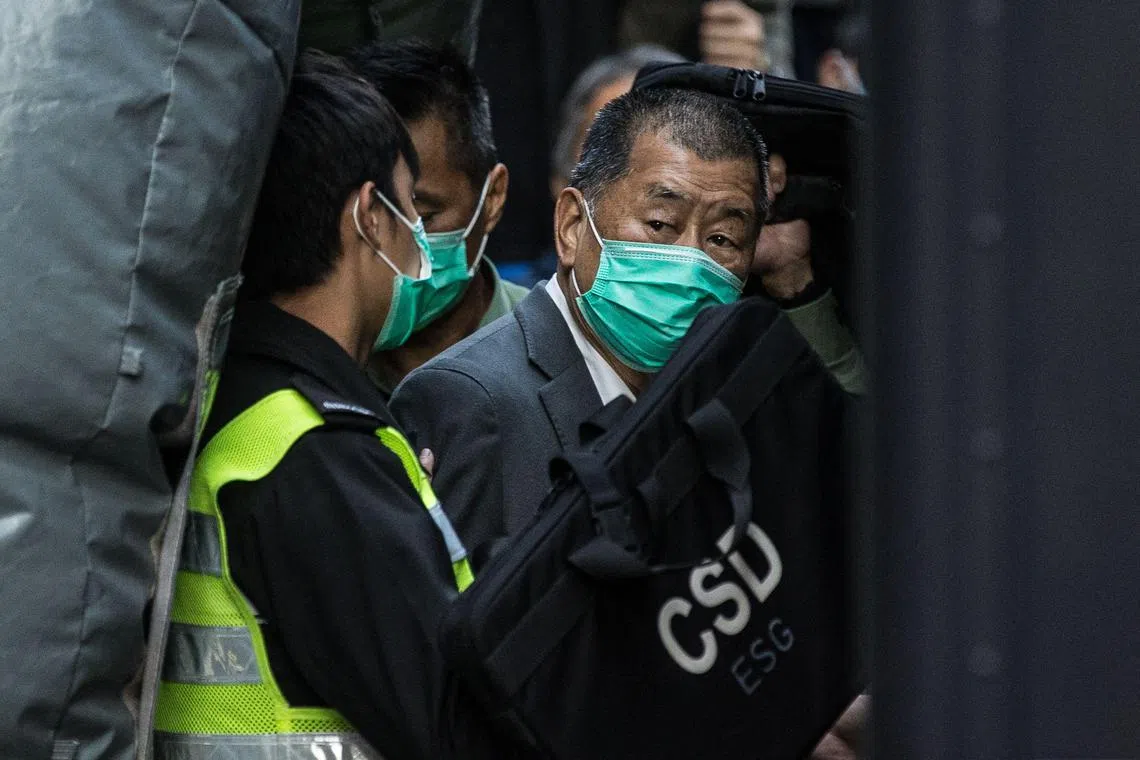Hong Kong’s top court hears Jimmy Lai appeal as scrutiny mounts
Sign up now: Get insights on Asia's fast-moving developments

The June 24 trial was the first time the city’s apex court examined a conviction of former media mogul Jimmy Lai’s role in a protest.
PHOTO: AFP
Follow topic:
HONG KONG – Hong Kong’s highest court started its first trial over former media mogul Jimmy Lai’s role in pro-democracy protests in 2019, after a spate of departures of foreign judges renewed scrutiny on the city’s judiciary.
The Court of Final Appeal on June 24 began hearing the appeal from Lai and six former lawmakers who seek to overturn their conviction for joining an unlawful protest in August 2019. A Lower Court earlier cleared the seven pro-democracy activists of a charge of organising that rally but upheld their guilty verdict for participating in it.
The hearing comes days after a prominent British judge, Lord Jonathan Sumption, resigned from the top court in one of three exits announced in June and warned of a “grave danger” to the rule of law in the finance hub because of Beijing’s tightening grip.
The June 24 trial was the first time that the city’s apex court examined a conviction of Lai’s role in a protest.
A non-permanent justice from the UK, former Supreme Court president David Neuberger, was on the panel of five judges hearing the case. The democracy advocates had argued their action could be excused because the authorities posed an excessive curb on their freedom of assembly, citing a 2021 ruling by the UK Supreme Court.
Lord Neuberger is one of the remaining overseas judges whom Hong Kong’s top court recruited from other common law jurisdictions – a feature the city has touted as a testament to its independent judiciary since returning to Chinese rule in 1997. An exodus of foreign justices since China’s imposition of a national security law on Hong Kong in 2020 threatens to hurt the city’s key appeal to global businesses.
The Hong Kong government denied putting any political pressure on the courts, saying it has always respected their independent adjudication power.
Lai and the six other defendants joined protests in 2019 opposing a government proposal to allow extradition to mainland China. The demonstrations successfully derailed the Bill and escalated into a broader movement against police actions and a demand for greater freedoms, prompting Beijing to impose a national security law the next year that crushed dissent.
Lai, who is already serving prison sentences for a range of offences related to his activism, is facing more severe charges of collusion with foreign forces under the Beijing-drafted legislation, in a separate trial that will resume in July.
Any conviction of Lai risks further inflaming ties between China and the US and UK, which are among the countries that have called for his release. BLOOMBERG

